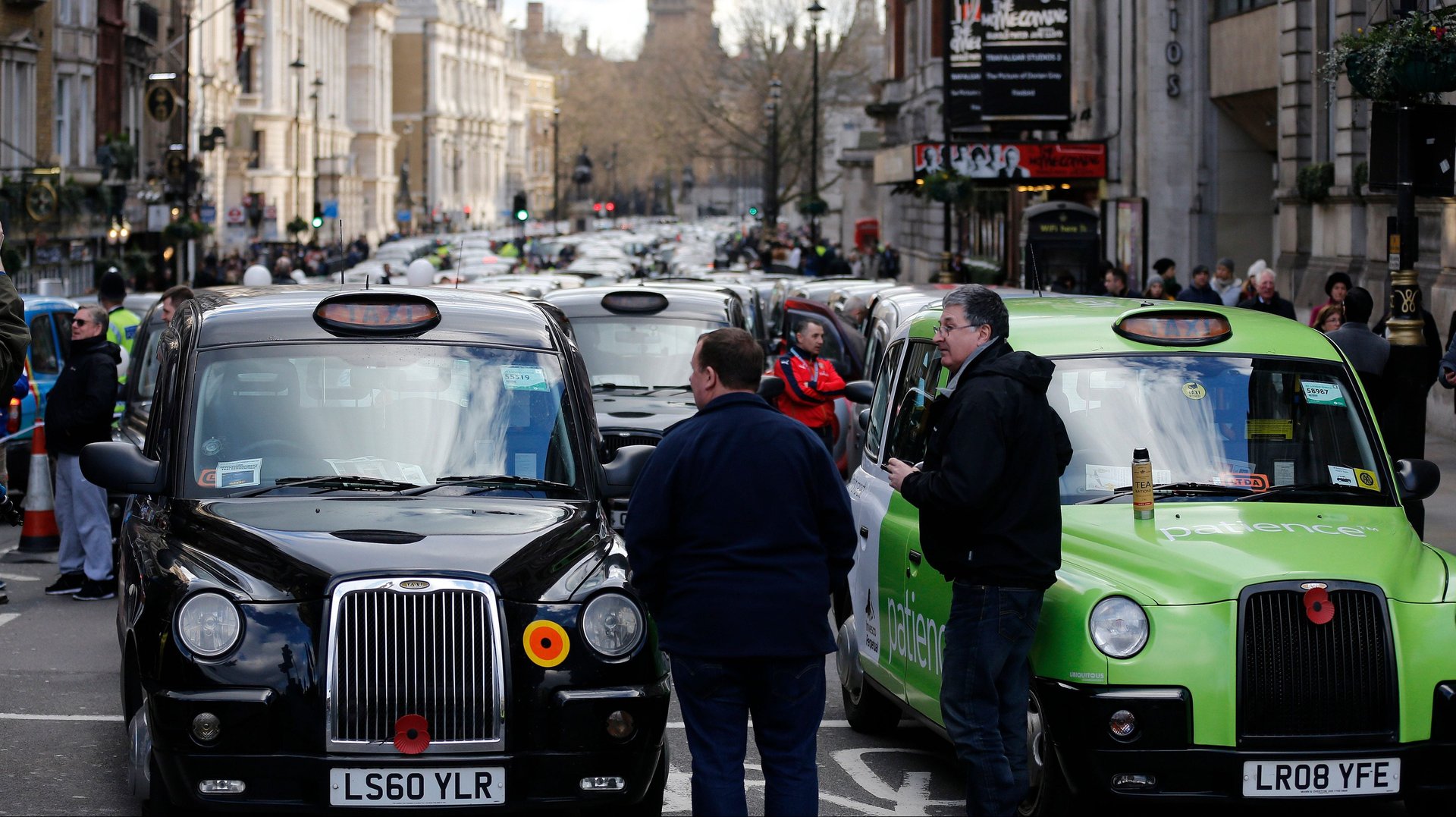India’s biggest ride-hailing service is driving into the UK
Indian ride-hailing startup Ola is driving into new countries like there’s no tomorrow.


Indian ride-hailing startup Ola is driving into new countries like there’s no tomorrow.
Today (Aug. 07), the Bengaluru-based company announced it plans to launch in the UK. This comes just six months after the Softbank-backed firm ventured into Australia in its maiden overseas move.
“Ola has obtained licences to operate in South Wales and Greater Manchester, and will launch operations in South Wales within the next month,” a company press release said. It will be the only ride-hailing app in the UK that offers passengers the option of both private-hire vehicles and Black Cabs, the release added.
Ola’s rival Uber says it currently operates in over 40 towns and cities across Britain and has “tens of thousands of drivers and millions of riders” every week in the region.
While Ola is way ahead of Uber in terms of the number of Indian cities covered, it is targetting global expansion, perhaps eyeing higher revenue.
“In India, they’ve mostly focused on metros and tier I cities. In tier II, I don’t know how much demand there is… So, they’re targeting developed markets like Australia and now the UK,” said Yugal Joshi, vice-president at research firm Everest Group. “In these markets, revenue per ride should be higher. Typically, you spend $20 to $30 (Rs1,400 to Rs2,000), which is way higher than what you’re spending (in India). The fuel cost also is cheaper there compared to India.”
Ola’s foreign play
In February, Ola made its first international debut in Perth, Australia. Despite Australia’s ride-hailing market being fairly crowded with international and local players like Uber, GoCatch, and Taxify, Ola has already expanded to seven cities there, signing up over 40,000 drivers.
Globally, Ola now facilitates a billion rides each year, with more than a million driver-partners and 125 million customers in over 110 cities.
The Indian unicorn plans to enter several new markets going forward, according to media reports. It is reportedly looking to launch in Bangladesh and Sri Lanka soon.
But considering Uber’s experience, Ola is unlikely to have a smooth ride.
In the UK, for instance, an employment court ruled in October 2016 that Uber broke the law by not providing two drivers with certain benefits. The San Francisco-based company’s licence was revoked on the grounds of failure to report “serious criminal offences” by its drivers and its use of surreptitious tracking technology, among other things.
Several London cab drivers also plan legal action against Uber, claiming they have lost £10,000 ($12,970) a year since the company began operating in the city in 2012.
“I’m sure Ola’s done some homework on their end but it’s a very difficult, unionised taxi market,” said Joshi of Everest Group.
Ola is working with local authorities across the UK to expand nationwide by the end of 2018, the company said in its press release.
Still, Ola’s a long way from global domination. Uber currently has a presence in over 70 countries, which is more than twice the number of countries its closest rival, China’s Didi Chuxing, operates in.